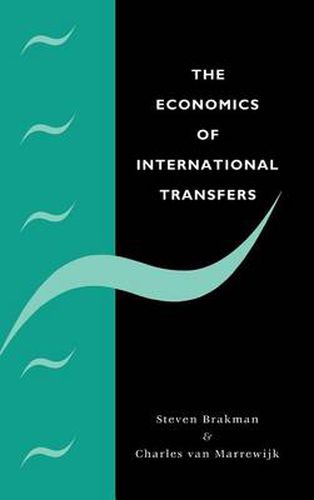Readings Newsletter
Become a Readings Member to make your shopping experience even easier.
Sign in or sign up for free!
You’re not far away from qualifying for FREE standard shipping within Australia
You’ve qualified for FREE standard shipping within Australia
The cart is loading…






Since the famous debate between Keynes and Ohlin on German reparation payments after World War I, international transfers have attracted the attention of economists. Today the subject is of even greater importance with billions of dollars flowing between nations as unilateral transfers. However the emphasis has shifted from balance-of-payments issues to the welfare consequences following a transfer, and in particular the welfare issues arising from aid to developing countries. In The Economics of International Transfers Professors Brakman and van Marrewijk present a complete overview of transfers (including the history of transfers and current transfer flows), and their own unified framework in which they present important and original research. Subjects considered include welfare effects, distortions, third parties, rent-seeking, the ‘trade or aid’ discussion, multi-lateral agencies, tied aid and imperfect competition.
$9.00 standard shipping within Australia
FREE standard shipping within Australia for orders over $100.00
Express & International shipping calculated at checkout
Since the famous debate between Keynes and Ohlin on German reparation payments after World War I, international transfers have attracted the attention of economists. Today the subject is of even greater importance with billions of dollars flowing between nations as unilateral transfers. However the emphasis has shifted from balance-of-payments issues to the welfare consequences following a transfer, and in particular the welfare issues arising from aid to developing countries. In The Economics of International Transfers Professors Brakman and van Marrewijk present a complete overview of transfers (including the history of transfers and current transfer flows), and their own unified framework in which they present important and original research. Subjects considered include welfare effects, distortions, third parties, rent-seeking, the ‘trade or aid’ discussion, multi-lateral agencies, tied aid and imperfect competition.